The New York Times reports that Bahrain’s neighbors have sent in troops to help quell disturbances there. The troubles of the Middle East continue apace, proving once again that bad news in one part of the world doesn’t prevent it from proceeding in another.
Troops from Saudi Arabia and police officers from the United Arab Emirates crossed into Bahrain on Monday under the aegis of the Gulf Cooperation Council to help quell unrest there, a move Bahraini opposition groups denounced in a statement as an “occupation.” …
Witnesses said a convoy of 150 armored troop carriers and about 50 other lightly armed vehicles carried about 1,000 troops across the bridge linking Saudi Arabia to the tiny island kingdom, and a Saudi security official told The Associated Press that the troops were there to protect critical buildings and installations like oil facilities. However, witnesses later said that the convoy seemed to be heading for Riffa, a Sunni area that is home to the royal family and a military hospital that is closed to the public, Reuters reported.
The Business Insider describes it as the latest move in the “proxy war” between Iran and Saudi Arabia, with Iran trying to topple the ruling house and Saudi Arabia trying to keep it up. But
Washington does not consider the movement “an invasion” but urged Bahrain and the incoming forces to “exercise restraint”. In this proxy war, as in most things, the 3 am call is a conference one which never seems to go anywhere.
Jacqwi Campbell of the New Yorker, blogging from Bahrain, encountered the Saudis and later received this text message from the US Embassy: “Previous guidance remains. Confirmed foreign military elements entering Bahrain along King Fahad Cwy. American citizens remain in residences until further notice.” Shortly afterward there were reports that unidentified persons were beating up protesters.
They said that men in plain clothes with long beards and knives beat students on campus. No one knew for sure who the armed assailants were—some suspected they were Batlijya, disguised secret police—but both Sunni and Shi’a students were terrified. “I was crying because I saw someone with blood on his face,” a student named Fatima told me. More than two hundred patients were registered that morning at Salaminya Hospital.
The the Saudis were there to do something. Whether they will succeed or not is still unclear. The markets reacted to the news by pushing oil prices up. “Crude oil futures edged higher in New York to end four days of declines on speculation unrest in the Middle East may escalate after Saudi Arabia sent its troops into Bahrain.”
“Saudi Arabia is sending troops to Bahrain and that has to make everybody nervous,” said James Williams, an economist at WTRG Economics, an energy research firm in London, Arkansas. “There is tension all around Saudi Arabia and the Middle East. Oil is not going to continue its decline.”
Oil supplies from the Middle East just might be disrupted by the goings-on there. This happens as analysts believed that the nuclear power industry had suffered a big public relations black eye as a result of reactor troubles in quake-stricken Japan. “Nuclear power accounted for about a third Japan’s of energy generation before the quake, and the damage has raised concerns about future of the industry there.”
The conventional wisdom is that nukes are politically on the outs for a while. Meanwhile the New York Times reports that there is unexpected opposition to the development of “Green Energy” in liberal strongholds because of its effects on their accustomed views and lifestyle. It turns out that “Green Energy” plans require the construction of noisy and unsightly windmills, road-narrowing bike paths, and a disturbing amount of construction.
Last week, two groups of New Yorkers who live “on or near” Prospect Park West, a prestigious address in Park Slope, filed a suit against the administration of Mayor Michael R. Bloomberg to remove a nine-month-old bike lane that has commandeered a lane previously used by cars.
In Massachusetts, the formidable opponents of Cape Wind, a proposed offshore wind farm in Nantucket Sound, include members of the Kennedy family, whose compound looks out over the body of water. In Berkeley last year, the objections of store owners and residents forced the city to shelve plans for a full bus rapid transit system (B.R.T.), a form of green mass transit in which lanes that formerly served cars are blocked off and usurped by high-capacity buses that resemble above-ground subways.
Green energy, though politically on the ins, has a bad habit of never happening, or happening in ways that provide power at uncertain and unpredictable times of the day. At least Green promises “shovel ready jobs”, when you can get the residents to agree. So, too, one might add, does calamity for gravediggers.
That is too bad, because environmentally evil fossil-fuel and nuclear plants are dying off from old age and new Green Energy, though always said to be forthcoming, never quite actually arrives. Steve Holliday, the CEO of Britain’s National Grid warned in 2008 that the old was not being replaced by the preferred new and made a plea for more incentives, because the market for energy was “failing”.
Britain could face regular blackouts within seven years if the Government does not intervene in the energy market to ensure that more power stations are built, the head of National Grid says today.
In an interview with The Times, Steve Holliday, chief executive of the company that operates the power and gas transmission network, said that Britain was facing an acute shortage of generating capacity because a string of aging nuclear and coal-fired plants were due to be retired from service. …
He said that the Government would need to introduce fresh incentives to guarantee that £100 billion of investment is made over the next decade to ensure the stability of the power grid.
This could include placing a floor on the price of carbon – a measure that would help to boost investment in new nuclear reactors and offshore windfarms.
“What is happening that people are not wanting to build enough power stations? The Government has an obligation to make sure that the markets are delivering,” Mr Holliday said. “You can’t afford for it to fail.”
And it continues to “fail” insofar as Green Energy is concerned, which means that Mr. Holliday, as James Dellingpole observes, can only promise consumers blackouts, which are a feature, not a bug of the new “smart grid”. The bad news is that you won’t have much energy in the future. The good news is that what little you have of it will be green. Dellingpole is aghast.
let us consider the words of Steve Holliday, chief executive of the National Grid, interviewed last week on BBC Radio 4’s Today programme.
“The grid is going to be a very different system in 2020, 2030. We keep thinking that we want it to be there and provide power when we need it. It is going to be much smarter than that. We are going to change our own behaviour and consume it when it is available and available cheaply.”
I have one simple question here: what on earth is this imbecile still doing in his job? …
Note Steve Holliday’s wonderfully creative use of the word “smarter”. In the old days, it used to mean positive things like “more intelligent”, “better dressed”, “sharper”, “quicker”, “wittier”. In Holliday’s Newspeak, however, it means “rationed according to the whims of Big Brother.”
As we have seen before, there are elements in the Green movement who actively want to revive wartime-style rationing and who welcome shortages and inconvenience, because they believe this is the price we must pay for “Saving The Planet.”
What is a matter of the direst concern is when such a fringe mentality becomes part of the political and economic mainstream.
Rationing our energy supplies it is not progress. It is a step back – quite literally – towards the Dark Ages.
Today “smarter” means walking around in the dark with a little solar powered flashlight. Tut, tut. Surely Mr. Dellingpole fails to appreciate the distinction between modern man, who blunders around in the Stygian blackness with a high-tech device made in China and neolithic man, who groped around with flaring torches spewing carbon. At least the Japanese required a tsunami to bring them to such a low estate. In the West the population managed to attain it entirely by choice.
“No Way In” print edition at Amazon
Tip Jar or Subscribe for $5



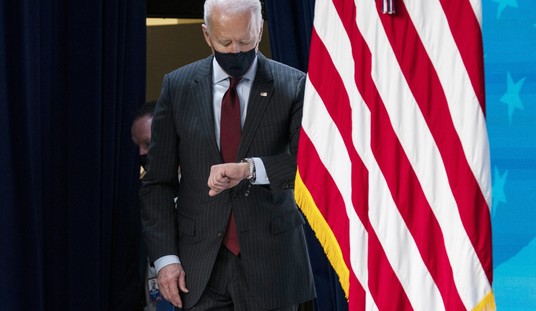
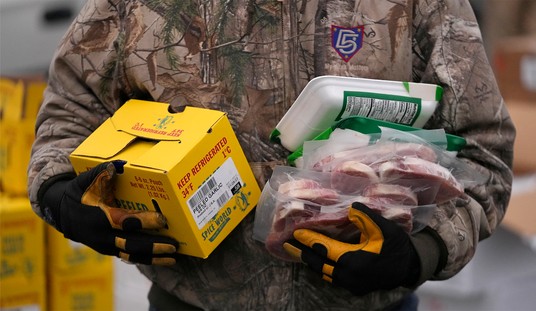

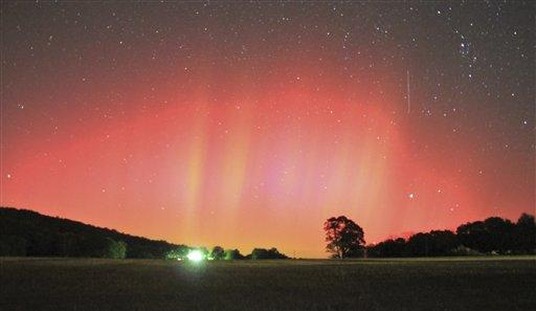
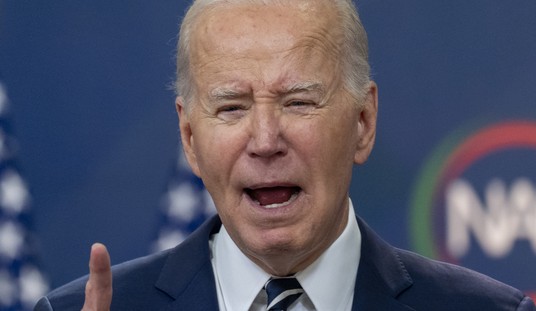
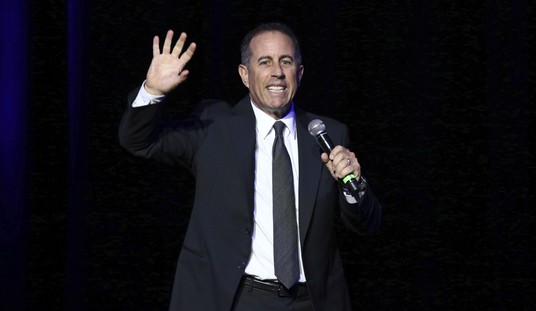
Join the conversation as a VIP Member